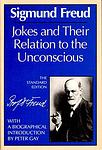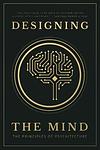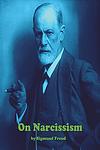The Greatest Irish, Austrian "Nonfiction" Books From 1910 to 1919
Click to learn how this list is calculated.
This list represents a comprehensive and trusted collection of the greatest books. Developed through a specialized algorithm, it brings together 305 'best of' book lists to form a definitive guide to the world's most acclaimed books. For those interested in how these books are chosen, additional details can be found on the rankings page.
Genres
Countries
Date Range
Reading Statistics
Click the button below to see how many of these books you've read!
Download
If you're interested in downloading this list as a CSV file for use in a spreadsheet application, you can easily do so by clicking the button below. Please note that to ensure a manageable file size and faster download, the CSV will include details for only the first 500 books.
Download-
1. The Unconscious by Sigmund Freud
This book delves into the complex workings of the human mind, exploring the concept of the unconscious. The author posits that our conscious mind is only a small fraction of who we are, and that a vast part of our thoughts, feelings, and behaviors are driven by unconscious processes. He discusses theories on dreams, slips of the tongue, and neuroses, arguing that these are all manifestations of unconscious desires and conflicts. The book provides a foundation for understanding psychoanalysis and the author's influential theories on the human psyche.
The 2845th Greatest Book of All Time -
2. The Theory of Economic Development: An Inquiry into Profits, Capital, Credit, Interest, and the Business Cycle by Joseph A. Schumpeter
This book presents a detailed analysis of the mechanisms of economic development, focusing on aspects such as profits, capital, credit, interest, and the business cycle. The author argues that economic development is driven by innovative entrepreneurs who disrupt the status quo, creating new goods and methods of production. He highlights the role of credit in facilitating these innovations, and examines the cyclical nature of economic development. The book also explores the societal and political implications of this process of 'creative destruction'.
The 7168th Greatest Book of All Time -
3. Instincts and Their Vicissitudes by Sigmund Freud
"Instincts and Their Vicissitudes" is a psychological analysis that explores the concept of instincts, their transformation, and their impact on human behavior. The book delves into the complexities of human instincts, proposing that they can be suppressed, redirected, or even reversed, and discusses their role in shaping our actions, desires, and anxieties. The author also examines the relationship between instincts and the conscious and unconscious mind, offering a comprehensive understanding of human psychology.
The 7960th Greatest Book of All Time -
4. Thoughts for the Times on War and Death by Sigmund Freud
This book is a profound exploration of the psychological impact of war and death on the human psyche. The author, a renowned psychologist, delves into the collective guilt and anxiety experienced by society during wartime, and the denial of death's inevitability as a self-preserving mechanism. He also discusses the disillusionment that arises when the veneer of civilization is stripped away, revealing the primal instincts beneath. The book is a deep, philosophical discussion about the human condition, morality, and the psychological consequences of war and death.
The 7960th Greatest Book of All Time -
5. Observations on "Wild" Psycho-Analysis by Sigmund Freud
This book is a critique and analysis of psychoanalysis practiced without proper training or understanding. The author argues that such "wild" psychoanalysis can be harmful and misleading, as it often leads to incorrect interpretations and misdiagnoses. The book also discusses the importance of professional training and adherence to established psychoanalytic methods, emphasizing that psychoanalysis is a complex and nuanced discipline that requires a deep and thorough understanding.
The 7960th Greatest Book of All Time -
6. The Future Prospects of Psycho-Analytic Therapy by Sigmund Freud
This book presents an exploration of the potential future of psychoanalytic therapy as seen by its most famous proponent. It discusses the theory and practice of psychoanalysis, its potential benefits and drawbacks, and the challenges faced by the discipline in its continued development. The author also addresses the potential for psychoanalysis to contribute to a broader understanding of human behavior and mental health, and considers the implications of these insights for the future of therapy and counseling.
The 7960th Greatest Book of All Time -
7. The Origin and Development of Psycho-Analysis by Sigmund Freud
This book offers an in-depth exploration of the birth and evolution of psychoanalysis as a field of study. The author, a pioneer in the field, delves into the intricacies of the human mind, presenting theories on dream interpretation, the unconscious, and the impact of childhood experiences on adult behavior. The book also provides insight into therapeutic techniques used in psychoanalysis, emphasizing the importance of understanding the underlying causes of psychological disorders for effective treatment.
The 7960th Greatest Book of All Time -
8. On Narcissism by Sigmund Freud
"On Narcissism" is an influential psychological work that explores the concept of narcissism, which is characterized by excessive self-love or self-centeredness. The author delves into the origins and development of narcissism, distinguishing between primary narcissism seen in infants who have not yet differentiated themselves from the outside world, and secondary narcissism in adults. The book argues that narcissism is a necessary stage in normal development, but can also be a characteristic of various mental health disorders if it persists into adulthood. The author also introduces the concept of the ego ideal, which plays a critical role in the development of the self and its relations to others.
The 7960th Greatest Book of All Time -
9. Repression by Sigmund Freud
This book delves into the concept of repression, a fundamental aspect of psychoanalytic theory. The author explores the idea that individuals often repress memories, particularly those associated with trauma or discomfort, pushing them into the unconscious mind. This repression, however, can lead to various psychological issues such as anxiety, depression, and neurosis. The book also discusses the therapeutic process of making the unconscious conscious, enabling individuals to confront and deal with these repressed memories.
The 7960th Greatest Book of All Time
Reading Statistics
Click the button below to see how many of these books you've read!
Download
If you're interested in downloading this list as a CSV file for use in a spreadsheet application, you can easily do so by clicking the button below. Please note that to ensure a manageable file size and faster download, the CSV will include details for only the first 500 books.
Download




